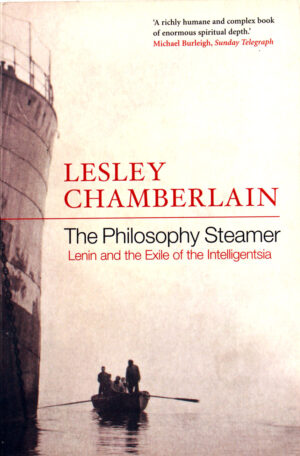Filter
Georgy Valentinovich Plekhanov, 1857–1918, a Russian revolutionary and founder of Marxism in Russia and known as the “Father of Russian Marxism.” His best works in the fields of history, philosophy, aesthetics, social and politics, especially the philosophy of historical materialism, were contributions that very valuable for the development of scientific thought and progressive culture.
Publisher: Aakar Books (1869)
Crime and Punishment is a novel by the Russian author Fyodor Dostoevsky. It was first published in the literary journal The Russian Messenger in twelve monthly installments during 1866. It was later published in a single volume. It is the second of Dostoevsky’s full-length novels following his return from 5 years of exile in Siberia. Crime and Punishment is considered the first great novel of his “mature” period of writing.
This book is correctly regarded as one of Trotsky’s finest classics. It is a product of a sharp polemic within the American trotskyist movement during the period 1939-40. This was a dispute which touched on the very fundamentals of Marxism. It was for this reason that Trotsky himself participated in this struggle in the form of a series of articles and letters that are brought together in this volume.
Publisher : Aakar Publications
This Ideas Of Lenin And Trotsky Are Without Doubt The Most Distorted And Slandered In Histoy. For More Than Eighty Years, They Have Been Subjected To An Onslaught From The Apolgists Of Capitalism, Who Have Attempted To Present Their Ideas – Bolshevism – As Both Totalitarian An Utopian. An Entire Industry Was Developed In An Attempt To Equate The Crimes Of Stalinism With The Regime Of Workers’ Democracy That Existed Under Lenin And Trotsky.
Authors : Alan Woods, Ted Grant
Publisher : Aakar Publications
Trotsky’s theory of the permanent revolution is one of the most important additions to the arsenal of marxism. It was first developed by Trotsky in 1904, on the eve of the first Russian Revolution. At that time, all the tendencies of the Russian Social Democracy had the perspective of a bourgeois democratic revolution. Trotsky alone in 1905 put forward the idea that the Russian working class could come to power before the workers of Western Europe. The correctness of Trotsky’s theory was brilliantly demonstrated in 1917, when the Bolshevik Party under Lenin and Trotsky led the Russian proletariat to power in the first workers state in the world.
However, after the death of Lenin in 1924, the theory of the permanent revolution was subject to a vitriolic onslaught by the stalinist bureaucracy, which had in effect renounced world revolution in favour of “socialism in one country”. The attack on the theory came to epitomise the struggle against “Trotskyism”. Today, however, with the collapse of Stalinism (and with it “socialism in one country”), Trotsky’s theory of the permanent revolution has become more relevant than ever.
Publisher : Aakar Publications
‘Compelling, laudably unsentimental and deeply significant.’ — Frances Stonar Saunders, GuardianIn 1922, Lenin personally drew up a list of some 220 ‘undesirable’ intellectuals to be deported in preparation for the creation of the Soviet Union in December of that year. Two ships sailed from Petrograd that autumn, taking around 70 of these eminent men and their families away to what became permanent exile in Berlin, Prague and Paris. Using diaries, letters and memoirs, The Philosophy Steamer tells the story of the philosophers, writers, journalists and scholars thrown out of their homeland and forced to join migr communities. It also explores the fate of ideas: not just those of Lenin, but also of the men who, though forced to leave their homeland, made unique contributions to the cultural and intellectual life of the twentieth century.’Chamberlain movingly describes the experience of exile in ways that echo that great exile novelist Nabokov himself… a richly humane and complex book of enormous spiritual depth by a remarkably talented author.’ — Michael Burleigh, Sunday Telegraph






